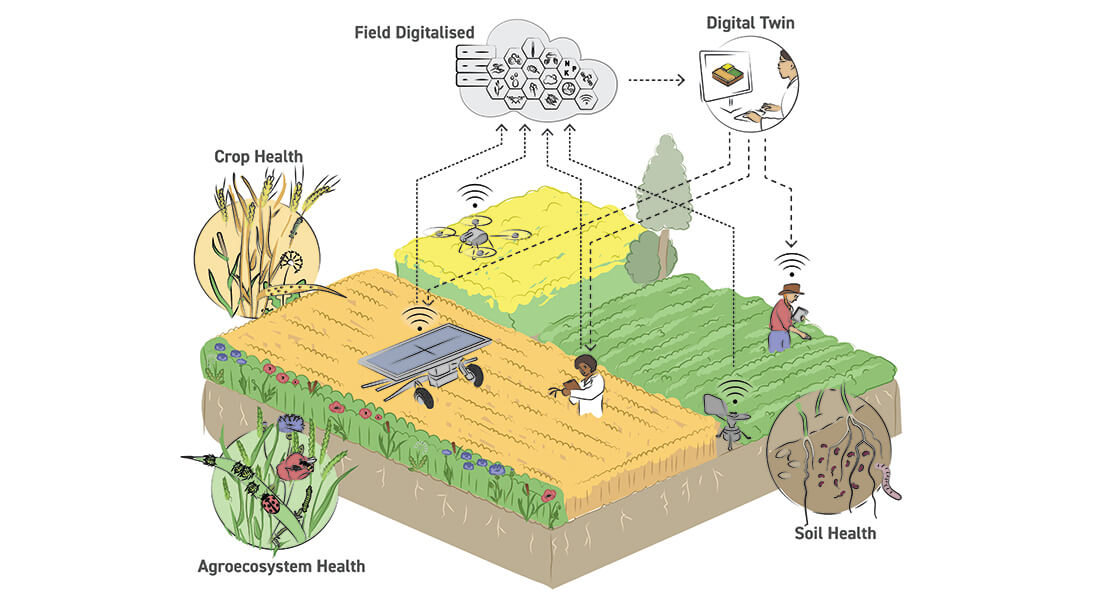One Crop Health: Next generation crop protection

Our systems-based approach emphasises ‘bottom-up’ agroecological approaches for prevention of large, frequent pest outbreaks; digital solutions for more timely and precise detection and prediction of pest populations; and next-generation, biology-inspired solutions for effective and environmentally benign control.
We will test three overarching hypotheses based on the principles of optimising prevention, detection and control of pests in One Crop Health systems.
- Spatial and temporal variance in pest pressure between farms are explained by a combination of environmental (weather, landscape context, soil health, provision of regulating ecosystem services) and management variables (crop diversity, tillage, intensity of inputs).
- Timely monitoring and surveillance of pest populations will reduce unnecessary pesticide inputs; potential reductions will be greatest on farms with low baseline populations.
- Data-driven integration of the environmental and management factors driving the interacting population dynamics of pest groups, and associated strategies for their prevention, detection, prediction and control will reveal optimal, site-specific One Crop Health solutions at the field, farm, region and country levels.
We believe human health systems with their greater emphasis on public health approaches to prevent disease, surveillance and diagnostics to enable early detection, and evidence-based, personalised interventions, can provide motivating examples for future crop health systems. Our One Crop Health concept uses data-driven approaches to embrace the inherent complexities that dictate the interactions between crop plants, pests, functional biodiversity and their environmental and management drivers in agroecosystems. The hierarchical, multi-scale approach that we propose will establish:
- Farm networks in Denmark and UK for studying field to landscape population dynamics and epidemiology of crop pests, weeds, diseases and functional biodiversity (WP1).
- Large-scale manipulative field experiments to design, test and optimise future crop health and protection systems (WP2).
- Systems models and digital twins to simulate current and future agroecological approaches for one crop health (WP3).
- An international PhD school focused on hypothesis-driven research to develop novel science and new interventions for pest prevention, detection and control (WP4).
Contact
Paul Neve
Project leader
pbneve@plen.ku.dk
+4535322161
Funded by:

Novo Nordisk Foundation Challenge Grant
Period: 01-01-2024 to 31-12-2029
